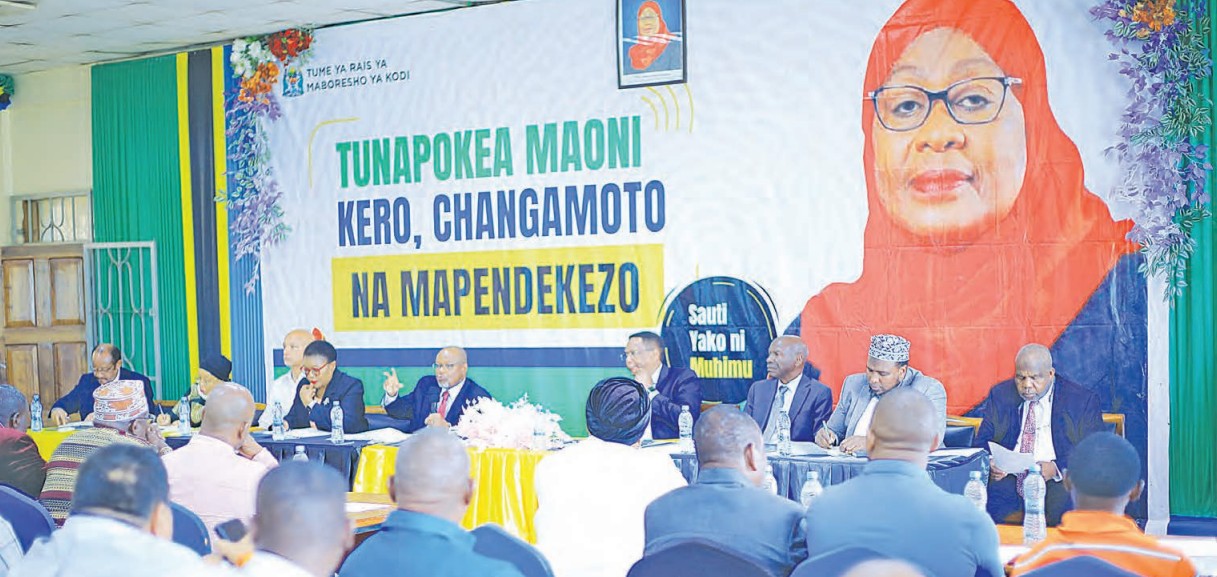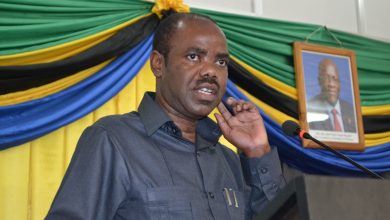Stakeholders advocate for one-stop centre to simplify tax, fee payments

TANZANIA: STAKEHOLDERS have recommended the establishment of a one-stop centre where all taxes and fees related to regulatory authorities performing the same functions would be paid.
They said that having the centre will not only lower the compliance burden for businesses who visit each authority separately but also will address the challenges of having many regulators.
They explained that establishment of a one-stop centre for taxes and regulatory fees would significantly improve efficiency, transparency and compliance, benefitting both businesses and regulatory authorities.
Besides, they advised the government to consider reducing the number of taxes and lowering tax rates, especially Value Added Tax (VAT), to discourage businesses from attempting to evade taxes.
The stakeholders noted that the increase in taxes often leads business people to seek alternative methods to evade tax payments. Presenting the recommendations, Chairman of The Tanzania Chamber of Commerce, Industry and Agriculture (TCCIA) in Mwanza Region, Mr Gabriel Kenene, underscored the need for a one-stop centre for regulatory authorities performing similar functions.
This, he said, would help reduce the compliance burden on businesses For instance, he explained, a single business is required to interact with multiple regulators for tax compliance, including the Tanzania Medicines and Medical Devices Authority (TMDA), the Tanzania Bureau of Standards (TBS), the Government Chemist Laboratory Authority (GCLA) and the Tanzania Atomic Energy Commission (TAEC).
Other regulatory bodies include the Occupational Safety and Health Authority (OSHA), the National Environment Management Council (NEMC), the Lake Victoria Basin Commission (LVBC), the Fire and Rescue Force and the Weights and Measures Agency (WMA).
Additionally, businesses must engage with the Land Transport Regulatory Authority (LATRA), the Tanzania Shipping Agencies Corporation (TASAC), the Energy and Water Utilities Regulatory Authority (EWURA), Local Government Authorities (LGAs) and the Tanzania Communications Regulatory Authority (TCRA).
“We suggest the establishment of a one-stop centre where all taxes and fees related to regulatory authorities performing similar functions would be paid. This would lower compliance costs for businesses, which currently have to deal with each authority separately,” insisted Mr Kenene.
Measures to expand tax base
The TCCIA-Mwanza Chairman recommended that the VAT rate be reduced from the current 18 per cent to 16 per cent, as is the case in other East African countries, in order to encourage more businesses to comply with tax payments. He noted that the move will discourage businesses from attempting to evade taxes.
In line with this, he explained the significance of creating a friendly climate for business people that will allow more people to join the tax system and relieve the burden on the few people who are currently paying taxes.
He added; “We should include all eligible businesses in the VAT system to create a fair playing field, especially in terms of pricing. This is because a business under VAT tends to have higher prices compared to one that is not under VAT.”
Large number of taxes Regarding this matter, Mr Kenene recommends reducing the number of taxes, fees and charges to allow businesses to grow and continue paying taxes.
ALSO READ: Stakeholders propose reforms to drive growth
He noted that the large number of taxes that businesses are required to comply with can significantly increase their operational costs and administrative burden.
“These taxes often involve dealing with multiple regulatory bodies, each with its own set of rules and requirements, which can be challenging for businesses to navigate efficiently. This underscores the need for streamlined processes, such as a one-stop centre, to simplify tax and regulatory compliance” he expounded.
The TCCIA-Mwanza boss stated that excessive taxes not only reduce the capital of taxpayers but also contribute to tax evasion, leading to a loss of revenue for the government.
“We advise that the taxes, levies and charges imposed on businesses be reduced to create a room for business to grow, enabling them to contribute more to revenue generation.” he underlines.
He added that currently, a business is required to pay Income Tax to Tanzania Revenue Authority (TRA), waste disposal fees, loading and unloading charges, billboard fees, service levy (0.3 per cent of gross sales), hotel levy (10 per cent of gross sales), parking fees and market fees.
The TCCIA’s views were echoed by the Chairman of the Mwanza Hotels Owners Association (MHOA), Mr Nyiriza Makongoro, who urged the government to consider reducing the multiplicity of taxes to help curb corruption.
“The proliferation of taxes is the source of negotiations between TRA officers, auditors and business owners, which ultimately leads to corruption,” he said.
He noted that the hotel sector faces no less than 22 different taxes, levies, fees and charges including services levies from various regulatory authorities, business licence fee, corporate tax, withholding tax, parking fee, among others.

Mwanza, recently
The statistics show that Mwanza Region, with a population of approximately 3.6 million according to the 2022 census, contributes 7.1 per cent to the national GDP. The stakeholders recently presented their views to the Presidential Commission on Tax Reform, chaired by Ambassador Ombeni Sefue, in Mwanza.
The commission, which began its work in October last year, was given six months to propose reforms aimed at overhauling the country’s tax structure and increasing its contribution to GDP. The commission’s main task is to address the ongoing tax challenges and enhance the country’s tax system to foster a more conducive business environment.
The commission will recommend strategies aimed at promoting voluntary tax compliance, expanding the tax base and addressing public grievances regarding taxation.
Formalisation of informal sector to expand tax base
Chairman for Mwanza Minerals Market, Mr William Kulindwa, proposes key measures that will encourage the formalisation of the informal sector including introduction of small registration fees and simple tax levies for small-scale miners to motivate them to transform into a formal system.
“Many miners who are currently operating outside the formal system would be encouraged to register and pay taxes if the process of registration was less burdensome and more affordable and the government could expand its tax base significantly,” he added.
Regarding the services levy, Mr Kulindwa suggested that the levy should be based on profit rather than sales turnover, as businesses sometimes make little or no profit. He said that currently, the levy is collected regardless of whether businesses or companies make a profit during the collection period.
“The levy should be collected based on profits rather than the current system of collecting from sales turnover,” he added. Tax collection System challenges Mr Kulindwa pushed for the improvement of digital tax collection systems that are userfriendly.
He pointed out that the current systems are riddled with challenges and inefficiencies that make it difficult for taxpayers to comply. “We should introduce a more streamlined, user-friendly system that would help reduce bureaucratic hurdles and encourage more people to join the formal tax system, ultimately benefitting both the miners and the government,” he added.
His views were seconded by the Mwanza-based Auditor and Tax Consultant, Ms Hadija Mshamu who stated that the TRA system has faced numerous challenges, including the taxpayer portal not recognising the payment of assessed penalties.
“Taxpayers may make payment of the assessed penalty but the taxpayer dashboard will still show the pending penalty payable, this creates misunderstanding among taxpayers,” she pointed out.
She added; “TRA needs to address the system failures to accommodate every taxpayer promptly and ensure that the application for notification of errors is attended to immediately,” she said.

coordinated by the Presidential Commission on Tax Reforms in Mwanza,
frecdently. (Photos by Samwel Mwalongo
Conflict of interest
Sharing the recommendations on behalf of the Chairman of the Mwanza Business Community, Mr Hamis Mgele said that some of the council employees have been taking control of business stalls and acting as middlemen for traders.
This situation contributes to many traders being unable to sustain their businesses and leads to an increase in the number of ghost taxpayers.
“Some untrustworthy local government employees have been taking ownership of business stalls and acting as intermediaries for traders at higher prices. This has resulted in stalls at Nyegezi Bus Stand (Nyamagana Municipality) and Nyamhongolo Bus Stand (Ilemela Municipality) still remaining vacant, which has negatively impacted tax collection,” he said.
Regarding these challenges, the community recommended the establishment of a permanent commission to address business environment challenges





